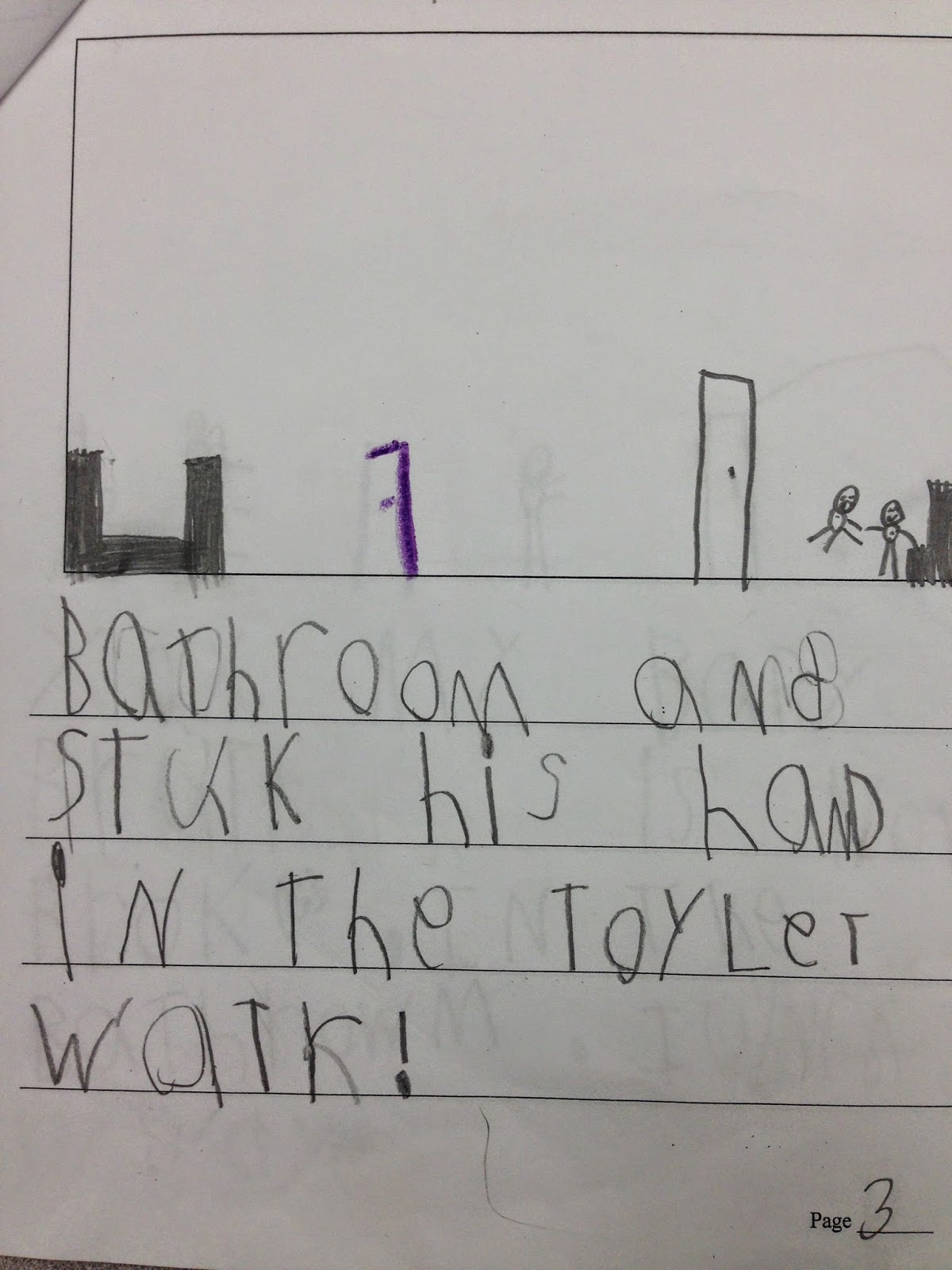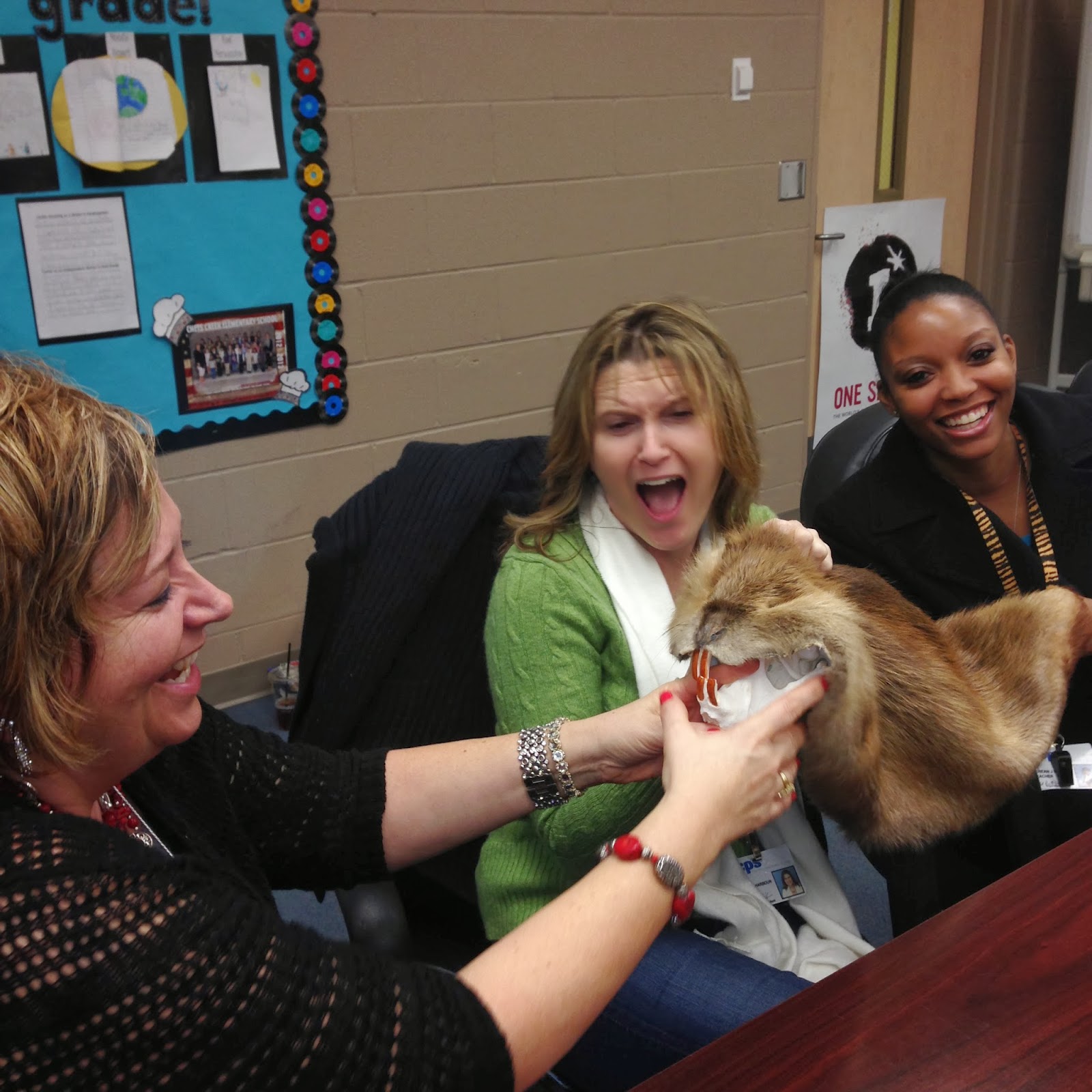Lucy Calkins recently said in a workshop here in Jacksonville,
In times of your life when you were called a failure - what that does to your dedication, your sense of power! It is debilitating. Oh Lucy, how I understand that quote - how sad that I understand that quote...
I feel like someone just kicked me in the gut. Rarely have I ever felt like that as a teacher - once when dealing with an extremely difficult circumstance with a parent - once when dealing with a heart wrenching circumstance with a child. In both cases the situations were so unfair and unjust that I just couldn't reconcile my own sense of fair play and justice. Now is another such time.
I have always believed good teacher evaluation, that moved us toward pay for performance, could be a good thing for our profession. I believed that teachers that worked hard and really went the extra mile deserved pay commensurate with their skills and effort. I was certainly never afraid of accountability or being evaluated. As long as I continued to be a learner who was willing to give 100%, I felt like all the details would work themselves out. I liked the idea of a career ladder for teachers who didn't want to leave the classroom. I knew some type of evaluation beyond the Principal's yearly visit would be part of the formula, and while I always worried about fairness, I put my faith in the system. Now I know, first hand, what it feels like to work hard and go the extra mile and then let a committee's interpretation of test data tell you that you have not done all that you can for the students you teach, even though you KNOW that is NOT the case. It feels like someone thrust a dagger in your heart.
In my situation, it is really not the test itself that was at fault, but poor communication that resulted in 10 teachers of first graders at my school being denied credit for the success of their students. Basically, a computer-based test was used that didn't allow for the teachers to document the growth of their higher students. Students topped out at the beginning of the year so there was nowhere to go at the end of the year but to repeat the same high scores - which equaled no progress! Did you get that? There are a million details that come into play - one paragraph in a 150 page manual written in 2009 that alludes to testing at a higher grade level, training where "testing up" was supposedly explained but somehow missed by an entire grade level of teachers, a Coordinator who supposedly relayed the information to principals that never made it to teachers, teachers who knew the problem and asked for direction and were told that testing up could NOT be done, teachers who followed the chain of command thinking they were doing the right thing, a district that decided to make an allowance for the same problem the year before but not this year - I could go on and on, but it really doesn't matter. The plain and simple fact is that teachers who worked hard to do the very best they could for their students - students who DID make the progress - are being denied the growth scores that would label them "highly effective."
These are some of the BEST teachers that I know. Five of them are Nationally Board Certified. Half of them have been "Teachers of the Year." They are all overachievers who, I am sure, have some of the highest Principal evaluations in our building, because they would be satisfied with nothing less. Most of them have leadership oozing from their pores. These are exemplary, seasoned teachers who have built entire careers on being "highly effective." They are leaders who have provided demonstration lessons all over the county - actually, through videotape, all over the country! About half of them looped their kids from Kindergarten to First. In Kindergarten they were "highly effective," but as first grade teachers, with most of the same students, they are, all of a sudden, only "effective." I wonder how the parents of the students who were rated as not showing growth - some of the highest students in the grade level - would feel if they knew? It is because these teachers continued to teach and introduced so many first grade skills in kindergarten that they had such high scores at the beginning of first grade. So basically they are being penalized for teaching at such high levels as kindergarten teachers! While this does not effect teachers' pay, at this time, it might in the future. However, I doubt even one of these teachers will care as much about the pay as they care about not being considered highly effective, which implies that they did not do all that they could do for the students in their care- that some of their best students are considered as not make any growth - that they are failures... This is about their names - their reputations - their professionalism.
I am one of those teachers. After almost 40 years - with an entire career of being "highly effective" - this year I am only "effective." Don't get me wrong. I haven't spent my life teaching so that I could get some fancy label. I absolutely love what I do. It's a calling for me - a mission field. I can't imagine doing anything else and at this late date, I certainly will not be making changes in my professional commitment. But... it is demoralizing. Honestly, it feels like someone just kicked me in the gut. It's not only me. I have watched some of the finest teachers I know let this get to them... and I understand. It also effects our Principal and Assistant Principal, the Guidance Counselor, the Reading Coach, The Media Specialist - all of those who have to depend on our growth scores, along with the rest of the K-5 school, to prove their own effectiveness.
I know that nobody said life is fair, but until we can figure out a fairer system for evaluating teachers, I will stand with those who oppose this type of measurement. And right now, we all have a moral responsibility to shed light on a failing teacher evaluation system. Can we ever put our faith in a system that allows this to happen?








































